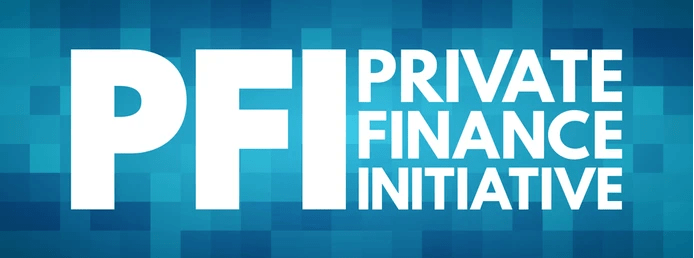
Understanding its Role in Public Infrastructure Development
PFI full form: Governments around the world are increasingly turning towards innovative financing mechanisms in the area of public infrastructure to fill funding gaps, speed up project delivery and improve the quality of essential service. In recent years, the Private Finance Initiative has become a popular mechanism. This blog explores the Private Finance Initiative and its significance for shaping public-private partnership (PPPs), infrastructure investment, and meaning.
The Private Finance Initiative:
Private Finance Initiative is a method of procurement used by government to finance public infrastructure through private sector involvement and investment. The PFI model involves private companies or consortiums being contracted to design and build public infrastructure assets, finance them, operate them, and maintain them over a period of time, usually between 25-30 years.
How PFI works:
Project identification: Governments determine infrastructure projects that are suitable for PFI based on factors such as cost and complexity. They also consider the long-term requirements of service.
Private sector participation Through a competitive bid process, companies or consortiums from the private sector submit proposals for undertaking the project. They detail their financial, technological, and operational abilities.
Contract negotiation: After selection, the government will enter into a contract with the selected private sector partners, outlining all the terms and conditions and performance criteria of the project. This includes financing arrangements, construction timelines and service standards.
Project Deliver and Operation: The private sector partners assume responsibility for the design, construction, financing, operation, and maintenance of the infrastructure asset during the concession period. However, the government retains ownership.
Payment Method The government pays periodic payments to private sector partners, also known as unitary or availability payments. These payments are based on performance and delivery of services agreed upon, and ensure value for money.
The importance of PFI
Private Finance Initiatives (PFIs) offer several advantages and benefits to both government and private sector investors.
Access Capital: PFI allows governments to leverage additional funding without upfront investments by leveraging private sector expertise and capital.
Transfer of Risk: PFI transfers some risks to private sector partners, including construction delays, overspending, and poor operational performance. This encourages efficiency and accountability.
Efficiency and Innovation: The private sector’s involvement in projects, construction and service delivery encourages efficiency and innovation. This leads to better quality and value.
Long Term Service Provision PFI promotes the long-term provision of services and asset management. It ensures sustainability and lifecycle-management for public infrastructure assets throughout their operational lifetime.
Conclusion:
The Private Finance Initiative (PFI), in conclusion, represents a paradigm change in public infrastructure funding, encouraging collaboration, innovation and efficiency when delivering essential infrastructure and services. By leveraging the capabilities of private sector and innovative financing mechanisms, government can address infrastructure challenges and meet growing demand while creating lasting value for the society.
PFI is a powerful example of collaboration and shared responsibility that can be used to advance infrastructure development, and foster economic growth and prosperity.


